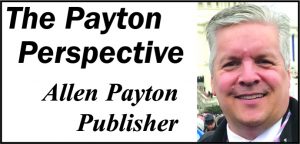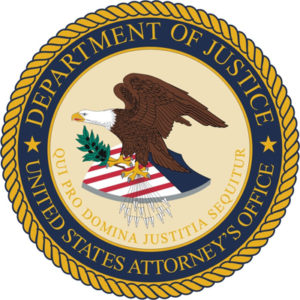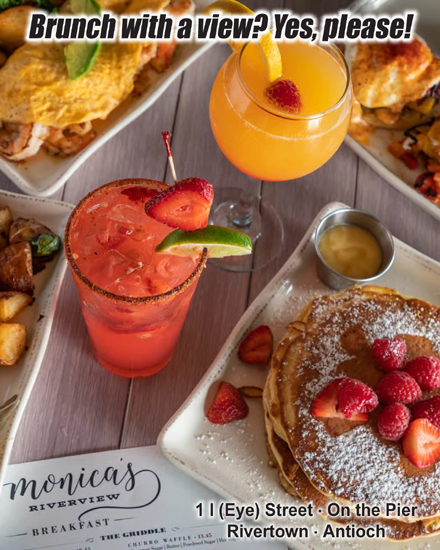Payton Perspective: Gov. Newsom isn’t really allowing places of worship to reopen, his guidelines are too restrictive
Some churches to participate in civil disobedience this Sunday and open for services.
“Simply put, there is no pandemic exception to the U.S. Constitution and its Bill of Rights”… “the Constitution calls for California to do more to accommodate religious worship” – 5/19/20 US DOJ letter to Gov. Newsom.
 By Allen Payton
By Allen Payton
Yesterday, Monday, May 25, 2020 – Memorial Day, the day we honor and commemorate those who died for our freedoms, some of which are seriously limited, right now – California Governor Gavin Newsom issued guidelines for reopening places of worship. At first, I was hopeful that he was doing something good in response to President Trump’s directive to all the governors and the directive to California from U.S. Attorney General William Barr and the Department of Justice, last week.
But the guidelines don’t really allow most places of worship to reopen. Why? Because they’re too restrictive, limiting attendance to just 25% of building capacity or 100 people whichever is less. Plus, Newsom is leaving it up to each unelected county health officer to approve of the guidelines or not.
Now, it’s worse because they’re allowing more and more businesses to reopen – which is great – but not the churches. Our officials already considered all the vice serving businesses, including all the locations of the nation’s top abortion provider, Planned Parenthood, liquor stores, and marijuana dispensaries essential. But not the churches or other places of worship. And as of today, the governor said barber shops and hair salons can reopen.
Which part of “shall make no law…prohibiting the free exercise” of religion and the other First Amendment right of freedom of peaceful assembly, don’t our officials get?
Civil Disobedience
Following in the footsteps of the black Christian ministers who led the efforts during the civil rights movement, it appears some churches will be participating in some civil disobedience with the ministers leading the effort for their rights, when they hold services this next Sunday, May 31st in defiance of state and local orders. Those in attendance will probably only be issued citations and the maximum fine is $1,000, which they can collectively fight. Plus, with $0 bail, right now none of them will go to jail. Most likely only the ministers will be cited and fined. But who knows? The Lord does and we will see just how far the government officials will take this and just how much they want to continue this fight.
Time to Elect New Leaders
It’s definitely time we elected only those who agree that places of worship are essential, not only to those who attend, but society as a whole, and will actually uphold their oaths of office, in which they swore to defend the Constitution against all enemies foreign and domestic. Event the CDC recognized that in the statement for its Interim Guidance for Communities of Faith, unlike our governor in the statement included with his guidelines. The CDC wrote, “Millions of Americans embrace worship as an essential part of life. In addition, we note that while many types of gatherings are important for civic and economic well-being, religious worship has particularly profound significance to communities and individuals, including as a right protected by the First Amendment. State and local authorities are reminded to take this vital right into account when establishing their own re-opening plans.”
What did the governor include in the statement about his guidelines? Just more warnings about how public gatherings can cause more deaths. That statement includes, “There have been multiple outbreaks in a range of workplaces, indicating that workers are at risk of acquiring or transmitting COVID-19 infection. Examples of these workplaces include places of worship, long-term care facilities, prisons, food production, warehouses, meat processing plants, and grocery stores.”
“Further, it is strongly recommended that places of worship continue to facilitate remote services and other related activities for those who are vulnerable to COVID19 including older adults and those with co-morbidities. Even with adherence to physical distancing, convening in a congregational setting of multiple different households to practice a personal faith carries a relatively higher risk for widespread transmission of the COVID-19 virus, and may result in increased rates of infection, hospitalization, and death, especially among more vulnerable populations. In particular, activities such as singing and group recitation negate the risk-reduction achieved through six feet of physical distancing,” Newsom’s statement continues.
Nothing about our First Amendment rights which should be protected or that corporate worship or even churches being essential to at least some Californians or society as a whole.
Legal Efforts
We also need to support the legal efforts of those suing the state and governor to get the courts to force him to allow the churches to reopen. One way you can do that is by supporting the Center for American Liberty, based in San Francisco and led by my friend, attorney Harmeet Dhillon and her fellow attorney, Mark Meuser, a former Contra Costa resident. Read about their cases and make a contribution, here – https://libertycenter.org/pf/covid-19-litigation/.
Another lawsuit by churches in California against Newsom and the state, which was joined by Dhillon, lost last week at the 9th Circuit Court of Appeals on a 2-1 decision of a three-judge panel. Not surprising the judges who voted with the governor were appointed by Clinton and Obama, and the one judge that voted with the churches was appointed by Trump.
“These are emergency appeals,” Dhillon explained on Monday. “We filed for an appeal to the U.S. Supreme Court” in the recent case before the 9th Circuit.
“The DOJ sent a letter to the governor that his policies were discriminatory against churches,” she continued. “Today’s guidelines are still limiting. They’re totally arbitrary. There is no limit of 100 people for any retail establishment. Retail has a 50% capacity limit for some and none for others.”
“To tell people how they can worship, this is more unconstitutional and very problematic,” Dhillon added.
DOJ Letter to Newsom
In the DOJ letter to Newsom about “several civil rights concerns with the treatment of places of worship” due to the governor’s stay-at-home order, as well as “documents relating to the California Reopening Plan” it states “Simply put, there is no pandemic exception to the U.S. Constitution and its Bill of Rights.” USDOJ 5.19.20 Ltr. to Hon. Gavin Newson
“Laws that do not treat religious activities equally with comparable nonreligious activities are subject to heightened scrutiny under the Free Exercise Clause of the First Amendment,” the letter continues.
“Places of worship are not permitted to hold religious worship services until Stage 3” of Newsom’s reopening plan, the letter explains. “However, in Stage 2, schools, restaurants, factories, offices, shopping malls, swap meets and others are permitted to operate with social distancing. And as noted, ecommerce and entertainment industry activities are already permitted with social distancing. This constitutes precisely the kind of differential treatment the Supreme Court identified” in the decision of another case “in which the government is not willing to impose on certain activities the same restrictions it is willing to impose on constitutionally protected religious worship.”
“Religious gatherings may not be singled out for unequal treatment compared to other nonreligious gatherings that have the same effect on the government’s public health interest…” the letter states.
It then refers to the recent case before the 9th Circuit and states, “Other decisions around the country…make clear that reopening plans cannot unfairly burden religious services as California has done.”
“We believe…that the Constitution calls for California to do more to accommodate religious worship, including in Stage 2 of the Reopening Plan.”
An email has been sent to the DOJ asking for their views on Newsom’s guidelines and if they comply with the May 19th letter. (Please check back later for updates to this column.)
Time for Action
It’s time for action and to stop living in fear, my friends. The governor’s guidelines are too restrictive and continue to clearly violate our God-given – the meaning of “unalienable” – and constitutionally protected rights of both freedom of religion and assembly. Until Newsom complies with the directives from the federal government, churches should feel free to reopen within the guidelines applied to nonreligious activities and businesses.
As the DOJ letter states, “Religious communities have rallied to protect their communities from the spread of this disease by making services available online, in parking lots, or outdoors, by indoor services with a majority of pews empty, and in numerous other creative ways that otherwise comply with social distancing and sanitation guidelines.” Local churches can do the same. We shall see if any actions are taken against the ministers and those who attend this Sunday’s services.
 DOJ Letter to Governor Newsom
DOJ Letter to Governor Newsom
U.S. Department of Justice
Civil Rights Division
________________________________________________________________________________
Office of the Assistant Attorney General Washington, D.C. 20530
May 19, 2020
The Honorable Gavin Newsom
Governor of California
1303 10th Street, Suite 1173
Sacramento, CA 95814
Dear Governor Newsom:
We are writing to you to raise several civil rights concerns with the treatment of places of worship in Executive Orders N-33-20 and N-60-20 and documents relating to the California Reopening Plan.
Of course, we recognize the duty that you have to protect the health and safety of Californians in the face of a pandemic that is unprecedented in our lifetimes. You and other leaders around the country are called on to balance multiple competing interests and evaluate the constantly changing information available to you about COVID-19, and make your best judgment on courses of action.
Attorney General William P. Barr recently issued a statement on Religious Practice and Social Distancing, in conjunction with a Mississippi case in which the Department of Justice participated regarding restrictions on worship. In the statement, the Attorney General emphasized the need to practice social distancing to control the spread of COVID-19. He also noted that temporary restrictions that would be unacceptable in normal circumstances may be justified. But, “even in times of emergency, when reasonable and temporary restrictions are placed on rights, the First Amendment and federal statutory law prohibit discrimination against religious institutions and religious believers. Thus, government may not impose special restrictions on religious activity that do not also apply to similar nonreligious activity.” Simply put, there is no pandemic exception to the U.S. Constitution and its Bill of Rights.
Laws that do not treat religious activities equally with comparable nonreligious activities are subject to heightened scrutiny under the Free Exercise Clause of the First Amendment. Church of the Lukumi Babalu Aye v. City of Hialeah, 508 U.S. 520 (1993). Laws that are not both neutral toward religion and generally applicable are invalid unless the government can prove that they further a compelling interest and are pursued through the least restrictive means possible. Religious gatherings may not be singled out for unequal treatment compared to other nonreligious gatherings that have the same effect on the government’s public health interest, absent the most compelling reasons.
Executive Order N-33-20 (March 19, 2020) ordered Californians to remain at home except to engage in authorized necessary activities as laid out by the Public Health Officer at the time and as modified going forward. The Public Health Officer’s April 28 “essential workforce” list does not appear to treat religious activities and comparable nonreligious activities the same.
The list includes “faith-based services” but only if “provided through streaming or other technologies.” In-person religious services are thus apparently prohibited even if they adhere to social distancing standards.
The list of nonreligious workers who are not so restricted by the Executive Order and essential workforce list when telework “is not practical” is expansive. For example, the list includes “Workers supporting the entertainment industries, studios, and other related establishments, provided they follow covid-19 public health guidance around social distancing.” Likewise, “workers supporting ecommerce” are included as essential, regardless of whether the product they are selling and shipping are life-preserving products or not. This facially discriminates against religious exercise. California has not shown why interactions in offices and studios of the entertainment industry, and in-person operations to facilitate nonessential ecommerce, are included on the list as being allowed with social distancing where telework is not practical, while gatherings with social distancing for purposes of religious worship are forbidden, regardless of whether remote worship is practical or not.
Even more pronounced unequal treatment of faith communities is evident in California’s Reopening Plan, as set forth in Executive Order N-60-20 (May 4, 2020), and in the documents the California Department of Public Health produced pursuant to it, including the “Resilience Roadmap” (https://covid19.ca.gov/roadmap/) and “County Variance Attestations” (https://www.cdph.ca.gov/Programs/CID/DCDC/Pages/COVID-19/Local-Variance-Attestations.aspx). Places of worship are not permitted to hold religious worship services until Stage 3. However, in Stage 2, schools, restaurants, factories, offices, shopping malls, swap meets, and others are permitted to operate with social distancing. And as noted, ecommerce and entertainment industry activities are already permitted with social distancing. This constitutes precisely the kind of differential treatment the Supreme Court identified in the Lukumi decision in which the government is not willing to impose on certain activities the same restrictions it is willing to impose on constitutionally protected religious worship. While it is true that social distancing requirements applied to places of worship may inevitably result in much smaller congregations than some faith groups would like, in our experience with other controversies around the country, many places of worship are quite content to operate at 15-25% of capacity in a way that allows for social distancing between family groups.
The Department of Justice does not seek to dictate how States such as California determine what degree of activity and personal interaction should be allowed to protect the safety of their citizens. However, we are charged with upholding the Constitution and federal statutory protections for civil rights. Whichever level of restrictions you adopt, these civil rights protections mandate equal treatment of persons and activities of a secular and religious nature.
We recognize that three U.S. District Courts have denied Temporary Restraining Orders (TRO’s) sought by plaintiffs against Executive Order N-33-20, Abiding Place Ministries v. Wooten, No. 3:20-cv-00683 (S.D. Cal. April 10, 2020) (no written opinion); Gish v. Newsom, No. 5:20-CV-755 (C.D. Cal. Apr. 23, 2020); Cross Culture Christian Ctr. v. Newsom, No. 2:20-CV-00832 (E.D. Cal. May 5, 2020), and one denied a TRO against the Reopening Plan, which is now on appeal to the Ninth Circuit. South Bay United Pentecostal Church v. Newsom, No. 3:20-cv-865 (S.D. Cal. May 15, 2020) (oral transcript ruling). These TRO decisions do not justify California’s actions. The Abiding Place, Gish, and Cross Culture TRO decisions do not address the Stage 2 reopening, and South Bay United Pentecostal does not describe why worship services can be distinguished from schools, restaurants, factories or other places Stage 2 permits people to come together. Other decisions around the country have followed Lukumi to make clear that reopening plans cannot unfairly burden religious services as California has done. See, e.g., Robert v. Neace, No. 20-5465 (6th Cir. May 11, 2020).
Religion and religious worship continue to be central to the lives of millions of Americans. This is true now more than ever. Religious communities have rallied to protect their communities from the spread of this disease by making services available online, in parking lots, or outdoors, by indoor services with a majority of pews empty, and in numerous other creative ways that otherwise comply with social distancing and sanitation guidelines. We believe, for the reasons outlined above, that the Constitution calls for California to do more to accommodate religious worship, including in Stage 2 of the Reopening Plan.
Thank you for your prompt attention to this matter. Should you wish to discuss further, please contact United States Attorney for the Eastern District of California McGregor Scott at
(916) 554-2730 or mcgregor.scott@usdoj.gov.
Sincerely,
Eric S. Dreiband
Assistant Attorney General
Civil Rights Division
McGregor W. Scott
United States Attorney
Eastern District of California
Nicola T. Hanna
United States Attorney
Central District of California
David L. Anderson
United States Attorney
Northern District of California
Robert S. Brewer
United States Attorney
Southern District of California
cc: The Honorable Xavier Becerra
Attorney General of California
the attachments to this post:

USDOJ 5.19.20 Ltr. to Hon. Gavin Newson


























